 Natural Treatments for Heart Disease
Natural Treatments for Heart DiseaseAFP IssuesAFP By Topic Collections AFP CME QuizAFP Community BlogSubscribe to AFPAlternative Therapies: Part II. Congestive heart failure and hypercholesterolemiaVINCENT MORELLI, M.D. and ROGER J. ZOOROB, M.D., M.P.H., Louisiana State University School of Medicine in New Orleans, LouisianaAm Fam Physician. 2000 Sep 15;62(6):1325-1330. This is Part II of a two-part article on alternative therapies. It appeared in the last issue (Am Fam Physician 2000; 62:1051–60). Article SectionsNatural supplements are widely used by the American public, but, while claims of their therapeutic effects abound, medical research does not always support their effectiveness. Clinical trials using Q10 for managing congestive heart failure have had conflicting results; hawthorn is prescribed in Germany for the treatment of this condition, but no trials have been conducted in the United States. Although initial research on the use of garlic in the management of hypercholesterolemia was encouraging, follow-up studies have not been able to verify these results. The replacement of soy protein for high-fat animal protein diets, however, has a beneficial effect on serum lipid levels. So far, coestine (a natural product containing several statins) has proven to be a cost-saving medicine to reduce lipids, and fenugreek can offer a modest improvement as well. Gugulipid is also promising, but requires more research. In 1997, Americans spent more than $12 billion on natural supplements; a 1993 study showed that one third of Americans surveyed used some form of alternative medicine. Family doctors should be aware of the widespread use of these products. We must be able to separate the anecdote from evidence-based benefits, and we must be aware of side effects and possible interactions between medicines and herbs or supplements if we want to provide informed consultations to our patients. American Family Physician has previously published articles focusing on herbal products and their side effects, as well as interactions between herbs and drugs., The first part of this article, published in the previous issue, reviewed the use of herbs and supplements in managing diabetes, depression and obesity. This part of the article highlights the role that supplements can play in managing two other conditions commonly found in the family doctor's office: congestive heart failure and hypercholesterolemia. it summarizes information about the natural products discussed. Summary of natural products used in the management of heart disorders Product Other names EficacyMechanism of actionFormulation Dosage/interval Side effects Drug interactions Congestive heart failure (CHF)Q10UbiquinonaModesto, in the best Antioxidant cases approved positiveLiquid, capsules100 to 200 mg per dayNon registered Is not effective NingunFresh, oil, aqueous, fermented or dryThe high amounts may cause stomach complaints None registered I amGlycine soja Tested; decrease the total cholesterol 5 to 9%, LDL 13%Protocolous properties; alter the metabolism of hepatic sites Extract daily average dose: 25 g of soy protein Powder resin extract; concentrated tablets75 mg per dayNone registered† No records Congestive heart failure (CHF)Q10UbiquinonaModesto, in the best Antioxidant; positive ionotropeLiquid, capsules100 to 200 mg per dayNot registered any HawthornCrataegus species, haw, may, whitethornIncomplete, but highly promise data; approved for use in Germany and Asia for mild resistance Is not effective NingunFresh, oil, aqueous, fermented or dryThe high amounts may cause stomach complaints None registered I amGlycine soja Tested; decrease the total cholesterol 5 to 9%, LDL 13%Protocolous properties; alter the metabolism of hepatic sites Extract daily average dose: 25 g of soy protein Powder resin extract; concentrated tablets75 mg per dayNone registered† No LDL = low-density lipoprotein; HMG CoA = 3-hydroxy-3-methylglutarilo coenzyme A.* Singh V, Kaul S, Chander R, Kapoor NK. Stimulation of low-density lipoprotein receptor activity in the hepatic membrane of rats treated by guru-sterone. Pharmacol Res 1990;22:37–44.† Lawrence Review of Natural Products information. Guggul. St. Louis, Mo.: Facts and Comparisons, 1995. Summary of natural products used in the management of heart disorders Product Other names EficacyMechanism of actionFormulation Dosage/interval Side effects Drug interactions Congestive heart failure (CHF)Q10UbiquinonaModesto, in the best Antioxidant cases approved positiveLiquid, capsules100 to 200 mg per dayNon registered Non-executive crank, oil, aqueous, fermented or dryThe high amounts may cause stomach complaints None registered I amGlycine soja Tested; decrease the total cholesterol 5 to 9%, LDL 13%Property of haemorrhage; alter the metabolism of hepatic cholesterol sites Extract Daily average cage: 25 g protein Powder resin extract; concentrated tablets75 mg per dayNone registered† No records Congestive heart failure (CHF)Q10UbiquinonaModesto, in the best Antioxidant; positive ionotropeLiquid, capsules100 to 200 mg per dayNot registered any HawthornCrataegus species, haw, may, whitethornIncomplete, but highly promise data; approved for use in Germany and Asia for mild resistance Is not effective NingunFresh, oil, aqueous, fermented or dryThe high amounts may cause stomach complaints None registered I amGlycine soja Tested; decrease the total cholesterol 5 to 9%, LDL 13%Protocolous properties; alter the metabolism of hepatic sites Extract daily average dose: 25 g of soy protein Powder resin extract; concentrated tablets75 mg per dayNone registered† No LDL = low-density lipoprotein; HMG CoA = 3-hydroxy-3-methylglutarilo coenzyme A.* Singh V, Kaul S, Chander R, Kapoor NK. Stimulation of low-density lipoprotein receptor activity in the hepatic membrane of rats treated by guru-sterone. Pharmacol Res 1990;22:37–44.† Lawrence Review of Natural Products information. Guggul. St. Louis, Mo.: Facts and Comparisons, 1995. Congestive heart failure Of the many adjunctive treatments for congestive heart failure (CHF), two of the most widely reported in recent years are Q10 and hawthorn. UBIQUINONE: Q10Q10 is a coenzyme that is found in all the tissues of the body (here is its common name, ubiquinone). It is necessary for certain metabolic reactions, including oxidative breathing, and its concentration is increased in the heart, liver and pancreas. Its use in heart disease comes from its antioxidant effects, its adenosine triphosphate stabilization activated by sodium and potassium (NaK ATPase) and its effect on calcium channels. To date, the clinical benefits of Q10 supplementation have not been clearly demonstrated. Two well-researched meta-analysis has shown better ejection fractions, traction volume, cardiac output, heart rate and end diastolic volume in patients taking Q10 supplement; each also suggested that Q10 may have a role in CHF treatment. However, the clinical meaning of these findings has not yet been proven. In clinical trials, a 1999 study showed that 22 patients enrolled in a randomized, double-blind, placebo-controlled trial, Q10 crusade experienced an increased rate of stroke in rest and at work and a decrease in pulmonary capillary moisture at rest. The study concluded that patients with congestive heart failure can benefit from Q10 supplementation. Two other recent clinical trials refuted this finding. A randomized, double-blind, placebo-controlled trial, crossover evaluated 30 patients for three months and found no increase in the systolic rest function despite Q10 plasma levels that were twice the normal base values. Another randomized, double-blind, placebo-controlled, crossover study of 79 patients with CHF measured ejection fraction, exercise tolerance and quality of life. This study found a non-significant increase in the ejection fraction and possibly a slightly higher exercise tolerance and slightly higher subjective quality of life in subjects taking Q10A in the light of the previous evidence, it can be concluded that if Q10 has a beneficial role in CHF management, it is modest in the best of cases. These studies did not find adverse side effects of Q10 on 100 mg doses per day for six years or 200 mg per day for one year. HAWTHORN The hawthorn plant contains pharmacologically active flavonoids that inhibit vasoconstriction and actively dilate blood vessels. One of these flavonoids has also been reported to block vasoconstriction by inhibiting angiotensin's conversion enzyme. These actions, as well as in vitro increases in coronary circulation (from 20 to 140 percent) and inhibition of adenosine 3′.5′-cycle phosphodiesterase monophosphate, give hawthorn its theoretical basis for use in congestive heart failure. As for its real observed effect in human studies, a revision of the German literature of 1996 concludes that rigorous clinical trials have shown benefit in objective signs and subjective symptoms of CHF stage II. A multicentered, placebo-controlled trial, double-blind, studied 136 patients with stage II CHF. A clear improvement was observed in the subjects receiving falcon and documented as an improvement in the product of the pressure-heart rate, while the conditions of the subjects receiving placebo deteriorated. The hawthorn group also had a subjective improvement in quality of life and mental well-being. The study concluded that hawthorn was an effective and low-risk form of phytotherapeutic treatment in patients with stage II heart failure. Hawthorn is sold as a prescription drug in Europe and Asia. In Germany, it has been approved and prescribed for mild heart failure. Despite the studies mentioned in German literature, we do not find that double-blind, randomized, placebo-controlled trials have been conducted across the United States, nor do we find studies that document echocardiographic improvements or improvements in exercise tolerance. Because hawthorn can enhance the action of heart glycosides and may interfere with the monitoring of digoxin or digoxin, it has been recommended that patients who use digitalis or other cardiovascular drugs refrain from using hawthorn unless they are monitored by a doctor. Neither we nor the authors of a 1998 review could find clinical studies that document this potential interaction. HypercholesterolemiaGARLICA despite the many promising studies and early metaanalysis that evaluate the effect of garlic as a low-lipid agent, more recent and rigorous studies have not shown these benefits.– There is no current role for garlic as an antihyperlipid agent. SOYThe precise mechanism by which soy proteins are thought to decrease the levels of serum lipids is not clear. Possible mechanisms include lower cholesterol absorption, decrease in reabsorption of bile in the intestine or possibly a change in the endocrine state associated with biologically active substances such as isoflavones (phytoestrogens) or saponins present in soy. Several well-conceived animal studies have clearly shown a decrease in total cholesterol and low-density lipoprotein (LDL) levels when the dietary soy protein was replaced by animal protein. Human observational studies, as well as human intervention tests, have also demonstrated the beneficial effect of soy on total cholesterol levels and LDL. A recent meta-analysis also showed a trend towards lowering cholesterol levels and lowering LDL levels among subjects taking soy, with an average decrease of 9 percent in total cholesterol levels, 13 percent in LDL levels and 10 percent in triglyceride levels. In 1998, Potter and associates corroborated this meta-analysis and found that soy protein consumption, replaced by animal fat, reduced total cholesterol levels by an average of 6 percent and non-high-density lipoprotein cholesterol levels by 7 percent in postmenopausal women with hypercholesterolemia. In 1998, Wong and his colleagues showed similar lipid-decrease effects in men with normal cholesterol levels and men with hypercholesterolemia. In October 1999, the U.S. Food and Drug Administration approved a "health claim" label for soy products. It was concluded that, "The low differences in saturated fat and cholesterol that include 25 g soy protein can reduce the risk of heart disease." To carry the labeling of the health claim, foods should contain at least 6.25 g of soy per serving and be low in fat, saturated fat and cholesterol. When reviewing all literature, you need at least 25 g of soy per day to see a decrease in cholesterol and LDL levels. It includes some of the most common soy sources and their soy protein content. SoySource Soy protein soy protein 1 cup soy protein g1⁄2 g0 to 1 cup soy oil soy oil soy oil soy protein 11 g1⁄2 cup soy proteins This "red rice yeast product" has been used for centuries in China and contains starch, protein, fiber and at least eight statin compounds, which function as 3-hydroxy-3-methylglutaryl A (HMG CoA) reductase inhibitors. Chinese studies claiming that this product decreased total cholesterol levels by 11 to 32 percent recently have been verified by US studies. In a recent, double-blind, placebo-controlled study involving 83 patients with hypercholesterolemia, total cholesterol levels decreased by about 15 percent and LDL levels decreased by about 22 percent in patients who received colestine. As expected, these results are similar to those obtained with commercially available "drug statins" because active compounds are essentially the same. Cholesterol may be a cost-saving option for patients who require medications for lipid reduction but cannot afford the most expensive and commercially available medicines. Although no adverse effects have been reported with the use of colestine, it would be prudent to monitor liver function, as well as creatine kinase, as well as to be done when commercially available statins are administered. FENUGREEKFenugreek, a legume sold as a dry seed, is native to Asia and southeast Europe. It contains active steroid fiber and saponins that have been documented as having a hypoglycemic effect in mild cases of type 2 diabetes (formerly known as non-insulin diabetes). It has also been shown that the leaching potential of this product is in rats, dogs and humans. , A recent study of patients with coronary disease and type 2 diabetes showed a decrease in total and triglyceride cholesterol levels with fenugreek use. A 1990 double-blind, placebo-controlled study of 10 patients with type 1 diabetes (formerly known as insulin-dependent diabetes) also showed a significant decrease in total cholesterol levels, LDL and very low-density lipoprotein (VLDL) in patients who received fenugreek. It is still too early to fully evaluate the lipid washing effects of this product, but there is some modest improvement. Well-designed clinical trials should be conducted in the future. GUGULIPID (GUGUL GUM)Gugulipid (guggul gum) is widely used in India for the treatment of hypercholesterolemia. Two placebo-controlled studies have been published in India. In a multicenter study with 205 subjects, it was found that gugulipid reduces total cholesterol levels by 22 percent and triglyceride levels by 25 percent, compared to placebo, in 70 percent of patients. In the other study of 61 patients, gugulipid was found to decrease cholesterol levels by 11 percent, LDL levels by 12 percent and triglyceride levels by 12 percent. In each of these studies, side effects on subjects receiving gugulipid were not different from subjects receiving placebo, and the cost of gugulipid was markedly lower than that of available statin drugs. The suggested dose is the equivalent of 75 mg guggulsterone per day. In conclusion, although there were problems with studies (e.g., short-term nature, non-comrelationship with cardiovascular morbidity and mortality, data collected from less than 200 patients), preliminary results indicate the need for additional studies. Read the full article. Read the full article. Already a member/subscriber? Purchase Access: Already a member or subscriber? Best Value! Get full access from $140 Access This Issue$39.95 Access This Article$20.95 $(."ui-dialog.ui-widget.ui-widget-content.ui-corner-all.subscriptionmodal.ui-draggable").addClass("dept"); Already a member or subscriber? The best value! Get full access This problem Access to this article $(."ui-dialog.ui-widget.ui-widget-content.ui-corner-all.subscriptionmodal.ui-draggable").addClass("dept"); REFERENCES1. Eisenberg DM, Kessler RC, Foster C, Norlock FE, Calkins DR, Delbanco TL. Unconventional medicine in the United States. Prevalence, costs and usage patterns. N Engl J Med. 1993;328:246–52....2. Cupp MJ. Herbal remedies: adverse effects and drug interactions. I'm Doctor Fam. 1999;59:1239–45.3. Zink T, Chaffin J. Herbal 'health' products: what family doctors need to know. I'm Doctor Fam. 1998;58:1133–40 [The published erratum appears in the Physics of Am Fam. 1999;59:540]4. Ernster L, Dallner G. Biochemical, physiological and medical aspects of ubiquinone function. Biochim Biophys Acta. 1995;1271:195–204.5. Soy AM, Mortensen SA. Treatment of congestive heart failure with Q10 coenzyme illuminated by metaanalysis of clinical trials. Mol Aspects Med. 1997;18(suppl):S159–68.6. Munkholm H, Hansen HH, Rasmussen K. Coenzyme Q10 treatment in severe heart failure. Biofactors. 1999;9:285–9.7. Watson PS, Scalia GM, Galbraith A, Burstow DJ, Bett N, Aroney CN. Lack of coenzyme Q effect on left ventricular function in patients with congestive heart failure. J Am Coll Cardiol. 1999;33:1549–52.8. Hofman-Bang C, Rehnqvist N, Swedberg K, Wiklund I, Astrom H. Coenzima Q10 as an adjunctive in the treatment of chronic congestive heart failure. The Q10 Study Group. J Card Fail. 1995;1:101-7.9. Schussler M, Holzl J, Fricke U. Myocardial effects of Crataegus species flavonoids. Arzneimittelforschung. 1995;45:842-5.10. Weihmayr T, Ernst E. Therapeutic effectiveness of Crataegus. Fortschr Med. 1996;114:27–9.11. Weikl A, Assmus KD, Neukum-Schmidt A, Schmitz J, Zapfe G, Noh HS, et al. Crataegus Special Extract WS 1442. Evaluation of objective efficacy in patients with heart failure (NYHA II). Fortschr Med. 1996;114:291-6.12. Miller LG. Herbal drugs: selected clinical considerations focused on known or potential interactions of the drug herb. Arch Intern Med. 1998;158:2200–11.13. Silagy C, Neil A. Garlic as a lipid reduction agent, a meta-analysis. J R Coll Physicians Lond. 1994;28:39–45.14. Neil HA, Silagy CA, Lancaster T, Hodgeman J, Vos K, Moore JW, et al. Garlic powder in the treatment of moderate hyperlipidemia: a controlled trial and metaanalysis. J R Coll Physicians Lond. 1996;30:329-34.15. Berthold HK, Sudhop T, von Bergmann K. Effect of garlic oil preparation in serum lipoproteins and cholesterol metabolism: a randomized controlled trial. JAMA. 1998;279:1900-2.16. McCrindle BW, Helden E, Conner WT. Garlic extract therapy in children with hypercholesterolemia. Arch Pediatr Adolesc Med. 1998;152:1089–94.17. Potter SM. Soy protein and lipid serum. Curr Opin Lipidol. 1996;7:260–4.18. Anthony MS, Clarkson TB, Hughes CL Jr, Morgan TM, Burke GL. Soybean isoflavones improve cardiovascular risk factors without affecting the reproductive system of rhesus monkeys. J Nutr. 1996;126:43–50.19. Balmir F, Staack R, Jeffrey E, Jimenez MD, Wang L, Potter SM. A soy flour extract influences serum cholesterol and thyroid hormones in rats and hamsters. J Nutr. 1996;126:3046–53.20. Wilson TA, Count K, Vergara-Jimenez M, Nicolosi RJ. Guinean hamsters and rabbits differ in their plasma lipoprotein distribution when diets are fed vary in animal protein, soluble fiber, or cholesterol content. J Nutr. 1999;129:1323–32.21. Potter SM, Bakhit RM, Essex-Sorlie DL, Weingartner KE, Chapman KM, Nelson RA, et al. Plasma cholesterol depression in men by consumption of baked products containing soy protein. I'm J Clin Nutr. 1993;58:501-6.22. Anderson JW, Johnstone BM, Cook-Newell ME. Meta-analysis of the effects of soy protein intake on serum lipids. N Engl J Med. 1995;333:276–82.23. Potter SM, Baum JA, Teng H, Stillman RJ, Shay NF, Erdman JW. Soy protein and isoflavones: its effects on blood lipids and bone density in postmenopausal women. I'm J Clin Nutr. 1998;68:1375S–9S.24. Wong WW, Smith EO, Hachey DL, Heird WC, Pownell HJ. Reducing soy protein cholesterol effect in North-west and hyper-cholesterolemic men. 1998;68:1385S–9S.25. Heber D. Diet supplement or drug? The case of cholestine [Charter]. I'm J Clin Nutr. 1999;70:106-8.26. Havel RJ. Diet supplement or drug? The case of the colestine [Editorial]. I'm J Clin Nutr. 1999;69:175-6.27. Heber D, Yip I, Ashley JM, Elashoff DA, Elashoff RM, Go VL. Effects of cholesterol reduction of a Chinese dietary supplement of a red-something flavor. I'm J Clin Nutr. 1999;69:231-6.28. Bordia A, Verma SK, Mrivastava KC. Effect of ginger (Zingiber officinale Rosc.) and fenugreek (Trigonella foenumgraecum L.) on blood lipids, blood sugar and platelet aggregation in patients with coronary disease. Prostaglandins Leukot Essent Fatty Acids. 1997;56:379–84.29. Petit PR, Sauvaire YD, Hillaire-Buys DM, Leconte OM, Baissac YG, Ponsin GR, et al. Steroid sacponins of fenugreek seeds: extraction, purification and pharmacological research on food behavior and plasma cholesterol. 1995;60:674–80.30. Valette G, Sauvaire Yes. Baccou JC, Ribes G. Hypocholesterolemic effect of fenugreek seeds in dogs. Atherosclerosis. 1984;50:105–11.31. Sharma RD, Raghuram TC, Rao NS. Effect of fenugreek seeds on blood glucose and serum lipids on type I diabetes. Eur J Clin Nutr. 1990;44:301-6.32. Nityanand S, Srivastava JS, Asthana OP. Clinical trials with gugulipid. A new hypolipidic agent. J Assoc Physicians India. 1989;37:323-8.33. Agarwal RC, Singh SP, Saran RK, Das SK, Sinha N, Asthana OP, et al. Gugulipid clinical trial, a new hypolipidic agent of plant origin in primary hyperlipidemia. Indian J Med Res. 1986;84:626-34.34. Singh RB, Niaz MA, Ghosh S. Hypopidemic and antioxidant effects of the mukul of Commiphora as a supplement to dietary therapy in patients with hypercholesterolemia. Cardiovasc Drugs Ther. 1994;8:659-64. Copyright © 2000 by the American Academy of Family Physicians. This content is owned by AAFP. A person who sees it online can make an impression of the material and can use that impression only for his personal and non-commercial reference. This material cannot be downloaded, copied, printed, stored, transmitted or reproduced in any medium, either now known or later invented, except as authorized in writing by AAFP. Contact for copyright questions and/or permission requests. You want to use this article somewhere else? More in AFPRelated ContentMore in PubmedMOST RECENT ISSUEMar 1, 2021Mar 1, 2021Acceder to the latest issue of American Family PhysicianEmail Alerts Don't miss a single problem. Subscribe to the AFP free content table. Browse this articleContinue reading Previous: Previous: Next: / / / / Alternative Therapies: Part II. Congestive heart failure and hypercholesterolemia Copyright © 2020 American Academy of Family Physicians. All rights reserved.
Herbs and Supplements for Heart Disease OverviewCardiovascular disease, also known as heart disease, or coronary disease (CAD), is the number one killer in the United States. Diet and lifestyle play an important role in the prevention and investment of heart disease, and certain herbs and supplements can help reduce the risk of heart disease and treat the heart conditions with which it has already been diagnosed. Several herbs and supplements can help in the fight against atherosclerosis, the underlying cause of most heart disease. Atherosclerosis causes the plate to be built in the arteries, blocking the flow of oxygen-rich blood to the heart and other organs. It can cause a heart attack and even death. Atherosclerosis is common in the developed world, but practically unknown outside it, due to the different diets and lifestyles of people in the developing world. These are some nutritional supplements that can help decrease the risk of developing heart disease:Coenzyme Q10CoenzymeQ10, or CoQ10, or ubiquinone, is a chemical that plays a crucial role in the ability of a cell to extract energy from food. Because the heart is the hardest working muscle in your body, it is essential that your heart have a constant supply of CoQ10 so you have energy to do your job. This chemical decreases with age and cholesterol low also exhausts it. This shows that taking CoQ10 supplements reduces oxidative stress and increases the antioxidant activity of the enzyme, relieves symptoms of cardiovascular disease. CoQ10 is safe and well tolerated and although not easily absorbed orally, a more ubiquinol "biodisposable" form, offers better absorption in your bloodstream. Statin therapy may exhaust CoQ10, so anyone who takes a statin medication should consider taking CoQ10 supplements. Omega-3 fatty acidsOmega-3 fatty acids are essential nutrients that help reduce inflammation caused by atherosclerosis. They also reduce triglyceride levels, fat blood components that block the arteries. High levels of triglycerides are linked to atherosclerosis and diabetes. This shows that the consumption of omega-3 fatty acids, commonly found in fish, is linked to low blood pressure, better blood lipid profiles, including lower triglycerides, and a reduced risk of death from heart disease. Green TeaFor centuries, people around the world have consumed green tea for their health benefits. This looks at one of its main components, the epigallocatechin antioxidant (EGCG), due to its ability to protect the heart. The study shows significant benefits with consumption of five to six cups of green tea per day. The green tea extract is also available as a capsule-shaped supplement. Granada As green tea, the pomegranate juice has been consumed for centuries, with the belief that red ruby fruit promotes health. Modern scientists demonstrate this belief in this. Powerful antioxidant chemicals in fruit and pomegranate juice can help reverse atherosclerosis and lower blood pressure. Magnesium and Potassium A study shows that taking supplements can reduce blood pressure and are good for general heart function and heart disease. Another study shows the dietary intake of improving heart function, as well as helping to compensate for increased blood pressure from a high salt diet. You may have always been told that sodium chloride, or table salt, is bad, but replacing magnesium salts and potassium for table salt can actually lower your blood pressure, as shown in this. Heart disease is a serious and dangerous disease in the United States. You can treat and prevent heart disease by decreasing risk factors, such as maintaining healthy blood pressure and cholesterol level, managing stress, eating healthy and doing a lot of exercise. Herbs and supplements can help prevent heart disease and reduce your symptoms by lowering blood pressure, improving breathing and helping your heart work better. Last medical review on March 22, 2016Read this following

Pin on health and heart care
Congestive Heart Failure Natural Treatment
Treat congestive heart failure natural cardiomyopathy vitamins minerals supplements
Pin on Health diet
Herbal Remedies for Congestive Heart Failure (CHF), Ayurvedic Treatment
Herbal Remedies to Prevent Heart Diseases - Medlife Blog: Health and Wellness Tips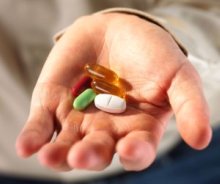
Natural Treatments for Congestive Heart Failure:max_bytes(150000):strip_icc()/treating-diastolic-dysfunction-and-heart-failure-1746170_FINAL-6378fcb71e1140b2a2f5a35efe8161de.png)
Treating Diastolic Dysfunction and Heart Failure
9 Steps For Improving Heart Health Naturally | Pritikin ICR
DR. SEBI CURE FOR HEART DISEASE: The Detailed Guide on Natural Treatment of Heart Problems Making Use of Dr. Sebi Alkaline Diet and Herbs: Dale, Josh: 9798627279503: Amazon.com: Books
How to Reverse Congestive Heart Failure Naturally - Healing Heart Disease With Nurse Phyllis | Heart failure, Heart failure treatment, Congestive heart failure diet
Understanding Congestive Heart Failure in Dogs - Whole Dog Journal
Herbal Medications in Cardiovascular Medicine | Journal of the American College of Cardiology
4 Risk Factors For Heart Disease - Congestive Heart Failure Alternative Treatment
Congestive Heart Failure Cure - Natural Cure For Enlarged Heart
Congestive heart failure results from a tired, weak, energy-starved heart that is losing its abi… | Heart failure treatment, Heart healthy, Congestive heart failure
Congestive Heart Failure Treatment, Symptoms, Stages, Prevention & Survival Rate
Heart Qi Tonic: Natural Treatment for Heart Failure in Dogs
Holistic Options For Congestive Heart Failure In Dogs | Dogs Naturally
What is Congestive Heart Failure (CHF)? | Dr. Weil
10 Ways to Prevent or Reverse Heart Disease Without Taking Drugs - EcoWatch
Is Congestive Heart Failure in Dogs and Cats Due to Lack of Nutrition?
What you don't know about heart disease could kill you | Heart failure treatment, Congestive heart failure, Heart failure
What Are The Natural Remedies For Heart Disease? - AyuCliniko | Optimum Health Begins Here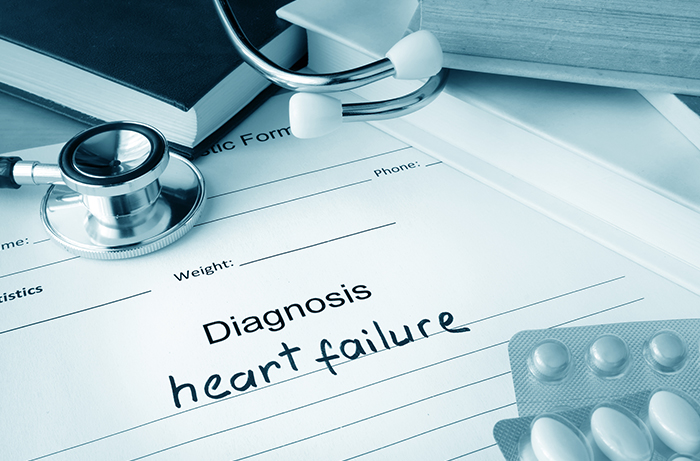
What is heart failure? Causes, symptoms, risk factors, and treatments
The Natural History of Congestive Heart Failure: The Framingham Study | NEJM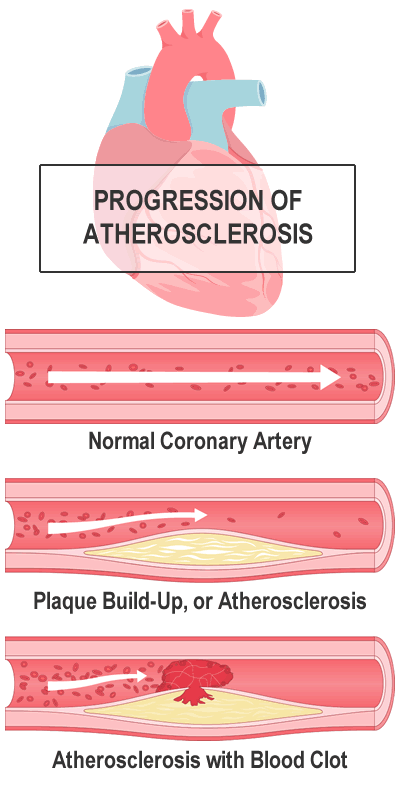
9 Steps For Improving Heart Health Naturally | Pritikin ICR
AN022 Congestive Heart Failure, Enlarged Heart (DCM), Cardiac fibrosis - Holistic Animal Remedies
What #Herbs Are Used for Medicinal Purposes at Home Today? | Home remedies for eczema, Home remedies for bronchitis, Cholesterol lowering foods
Reverse and Prevent Heart Disease: Natural Ways to Stop and Prevent Heart Disease, Using Plant-Based, Oil-Free Diets (Cure Congestive Heart Failure): Hilton, Kim: 9781717978561: Amazon.com: Books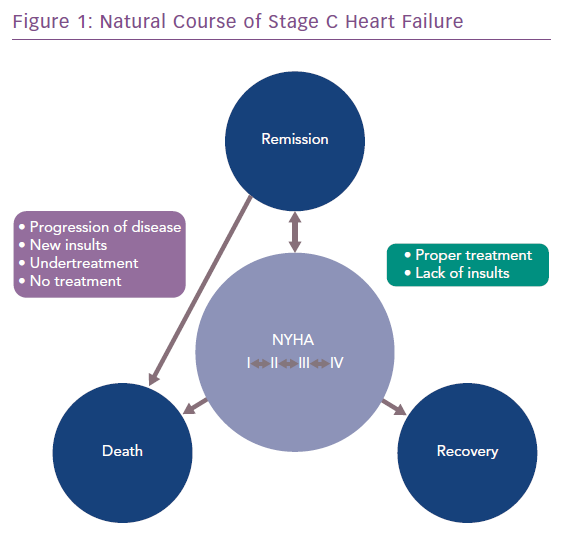
The Limitations of Symptom-based Heart Failure Management | CFR Journal
Herbal Remedies to Avoid | Health.com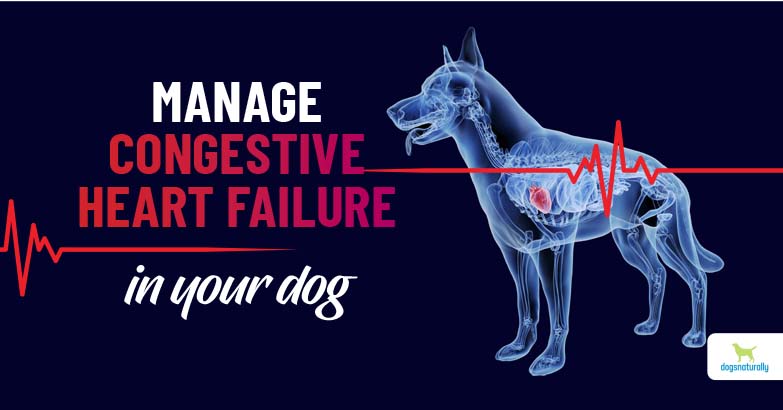
Holistic Options For Congestive Heart Failure In Dogs | Dogs Naturally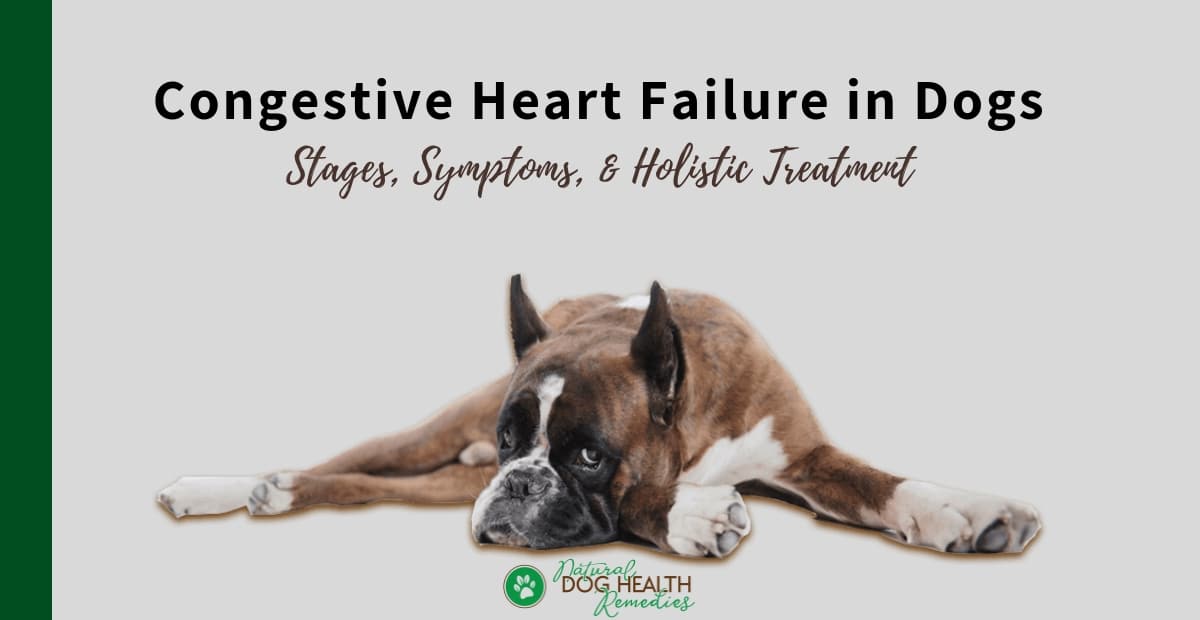
Congestive Heart Failure in Dogs | Symptoms & Treatment
Natural Treatments for Congestive Heart Failure | Heart failure treatment, Heart failure, Heart attack treatment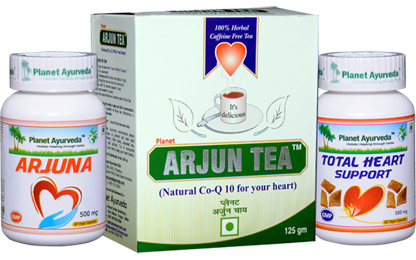
Herbal Remedies for Congestive Heart Failure (CHF), Ayurvedic Treatment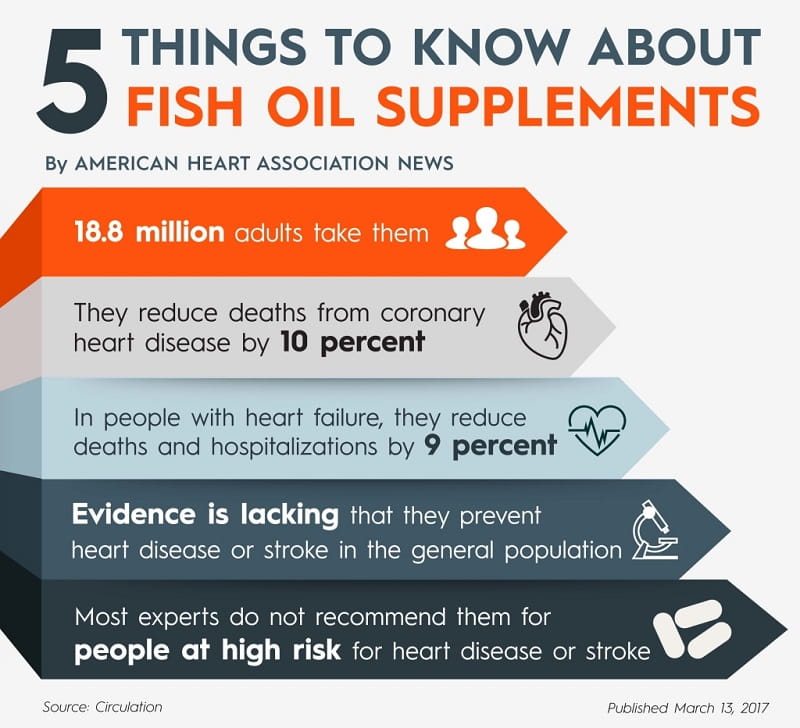
Fish oil supplements provide some benefit after heart attack, heart failure | American Heart Association
Congestive Heart Failure in Canines | Today's Veterinary Practice
AN022 Congestive Heart Failure, Enlarged Heart (DCM), Cardiac fibrosis - Holistic Animal Remedies
8 heart health supplements to take – and one to avoid | Healthy You
 Natural Treatments for Heart Disease
Natural Treatments for Heart Disease






:max_bytes(150000):strip_icc()/treating-diastolic-dysfunction-and-heart-failure-1746170_FINAL-6378fcb71e1140b2a2f5a35efe8161de.png)
































Posting Komentar untuk "congestive heart failure natural treatments"